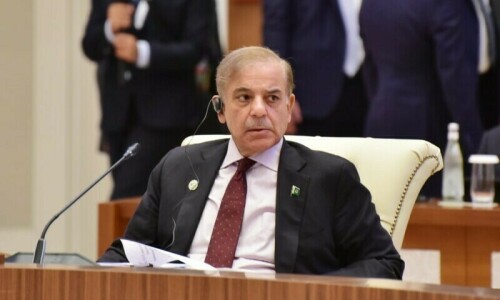FOLK literature is a strange phenomenon in the sense that it proffers humanistic and universal notions that transcend time and borders.
‘Folk’ means, literally, people. And ‘lore’ is the body of traditions and knowledge on a subject, says Concise Oxford English Dictionary. So folklore is sum total of traditional beliefs, customs and stories of a people having been passed along from generations to generations by word of mouth. Folklore comprises of intangible cultural heritage as well as material culture, such as artefacts and art forms.
The term folklore covers a wide range of things, such as, customs, rites, rituals, poetry, legends, tales, fables, proverbs, riddles, jokes, songs, dances and many other traditional phenomena --- even games, curses, swear words and superstitions.
Folk stories and verses are generally very popular among the native speakers of a specific language, but not every popular story or poem can be termed as folk. Folk literature has some characteristics and one of them is indeed being popular among the natives of a specific region. Other peculiarities of folk literature are: oral tradition transmitted through centuries, depiction of local culture and local environment, a deep sense of lives of locals narrated through historical or quasi-historical legends in a local dialect, hence, folk literature records and preserves the language, too.
Aside from these features, there are some other commonalities among folk literature written in Pakistani languages. Such common traits are explored and narrated with evidence by Prof Fateh Muhammad Malik in his new book Spiritual Heritage of Pakistan: Sufi Poetry in Folk Idiom. Just published by Sang-i-Meel Publications, Lahore, the book’s theme is Pakistan’s mystical heritage as reflected in poetry written in Pakistani languages and the author thinks “Sufi poetry is an essential part of Pakistan’s literary and cultural heritage”.
Malik discovers some remarkable attributes of Pakistani folk poetry, for example, while he stresses the fact that Sufis and their message was grounded in the communities they served and a local touch is always there, the universality of the message in Sufi poetry written in our languages cannot be overlooked. Sufi saints spread the message of love for the entire humanity and strived for creation of a society that was just, plural and favoured inclusivity. “Sufis opposed religious orthodoxy and were, in turn, rejected and ridiculed by local clerics. They also actively defied local structures of power”, says Malik. As a result, in many cases, folk literature and Sufi poetry became a narrative for political resistance. “This defiance is best represented in the poetic struggle of Sindhi saints”, he adds.
Malik has mentioned in the preface to the book that these are notes and reflections that served as basis for the lectures that he delivered as Iqbal professor at Heidelberg University and Berlin University. He admits, in his usual humble style, that some chapters of the book may sound more developed while others may sound like “reflections”. His modesty notwithstanding, one finds some incisive critique that makes the reader understand some essential attributes of Sufi poetry in Pakistani languages, which, says Malik, is steeped in the long history of Islamic mysticism and connected with the perennial themes of moral philosophy.
The book has 12 chapters, describing Sufi poetry and its essential themes, in Pakistani languages, with reference to some colossi and their poetry. As pointed out in the preface, “each chapter included in this volume focuses on a separate Sufi poet that operated in the area that currently constitutes Pakistan”. The Sufi saints and their poetry discussed in the book include: Baba Farid, Lal Shahbaz Qalanadar, Baba Guru Nanak, Shah Hussain, Sultan Bahu, Rahman Baba, Bulleh Shah, Shah Abdul Latif Bhitai, Sachchal Sarmast, Baba Siar and Mast Tawkkali.
This indeed does not include all the Pakistani languages as the number of languages spoken in Pakistan is quite high, but it reveals some characteristics that are strikingly common across the board, be it Kashmir or Sindh, Punjab or Balochistan or the KPK.
Prof Fateh Muhammad Malik is a veteran academic and critic known and respected for his work on a wide range of topics, especially on Urdu literature, Iqbal, Pakistan and Pakistani culture. Interestingly, Malik is known to have leftist leanings and his sympathies for left-wing political parties have never been a secret, but he has always been carrying out objective, unemotional and research-based literary and cultural analyses. So much so, that he has often criticised his contemporary leftist writers and Marxist intellectuals --- some close friends among them --- for their dogmatic and assertive approach on literary issues.
The book may serve as a useful guide for those who want to understand the philosophical message behind folk poetry by some of Pakistani Sufi poets.
Published in Dawn, May 2nd, 2022













































Dear visitor, the comments section is undergoing an overhaul and will return soon.